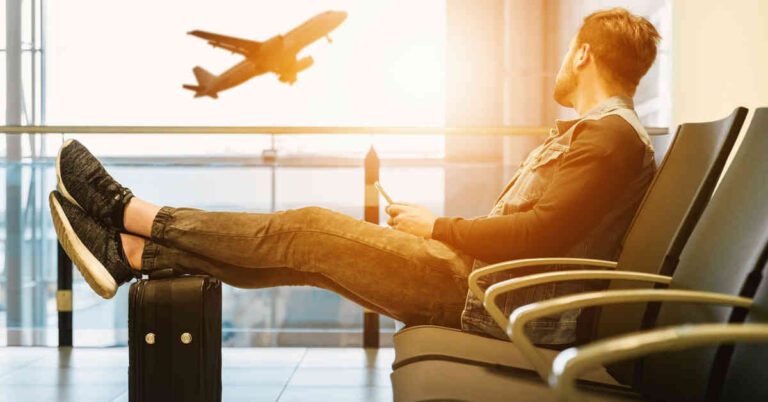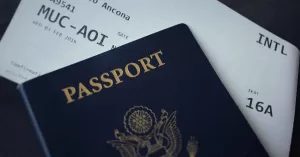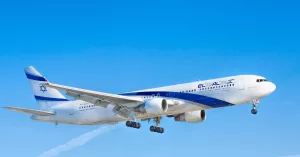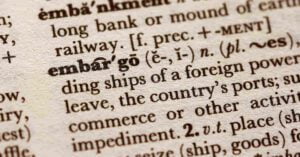Connecting flights can be a daunting experience for travelers, especially when it comes to the handling of checked baggage. One of the biggest concerns is whether you need to pick up and recheck your luggage during connecting flights. The answer to this question is not straightforward and depends on a variety of factors.
In this blog post, we’ll take a comprehensive look at the subject and help you understand if you must pick up and recheck your luggage on connecting flights.
What is a connecting flight?
A connecting flight is a flight with a stopover at one or more airports before reaching your final destination.
Are You Traveling on A Single Ticket?
If you are traveling on a single ticket, i.e., the entire journey is booked under one reservation, the airline is usually responsible for transferring your baggage from one flight to another. In such a scenario, you don’t need to collect and re-check your baggage at each layover. You can simply check-in your baggage at the starting airport, and the airline will transfer it to your final destination.
However, if you are traveling on multiple tickets, i.e., each flight is booked under a separate ticket, you will need to collect your baggage at each layover and re-check it with the next airline. This can be a time-consuming process, and you may also need to clear customs and immigration at some airports. In such a scenario, it is recommended to plan your layovers carefully to ensure that you have enough time to collect your baggage, clear immigration, and re-check it with the next airline.
Unlike when traveling on a single ticket, multiple tickets do not provide you with certain protections. One of them being if you miss your connecting flight due to your first flight being delayed, the airline is under no obligation to book you on the next available flight at no charge.
Note: the rest of this blog post assumes that you are traveling on a single ticket.
Does Your Itinerary Include More Than One Airline?
If your single ticket booking includes connecting flights with multiple airlines, it’s not always clear whether you will have to self-transfer your checked bags at a connection.
Airlines will transfer your checked bags if a codeshare or interline agreement exists between them. You can find out what agreements your airline has by visiting their website.
What are codeshare and interline agreements?
Codeshare and interline agreements are business arrangements between airlines to share flights and passengers, allowing passengers to fly on multiple airlines with a single ticket. One of the benefits that these agreements provide to travelers is that checked baggage can be sent to the final destination without having to be collected at a connection.
Types of Flight Connections
Whether you are flying domestically or internationally has a significant effect on whether you will be required to collect your checked bags at a connection.
In this section, we will explore the four different scenarios that you may encounter at a connection.
Your Flight Connection is Domestic
For domestic connections within the U.S., airlines typically allow you to check your baggage through to your final destination, regardless of the number of flights or airlines involved. This means that you can check your bags at the beginning of your trip and retrieve them at your final destination, without having to worry about collecting and re-checking your bags in between.
However, it is always a good idea to check with your airline prior to your flight to confirm their baggage transfer policy, as well as any restrictions or fees that may apply. If you have a layover of more than four hours, some airlines require you to collect your checked bags and re-check them. In this instance, the connecting airline will charge bag fees to check your bags.
When making a domestic connection, it is important to allow enough time for your baggage to be transferred between flights. Most airlines allow at least 45 minutes to an hour for domestic connections, but it is always best to check with your airline for their specific guidelines.
Your Flight Connection is International
For international connections, the baggage transfer process can be a bit more complicated, as the rules and procedures vary depending on the airlines and countries involved. In general, if you are traveling on a single ticket, you are eligible for baggage transfers between flights. However, it is important to check with your airline for their specific baggage transfer policy, as some airlines may have restrictions or fees for baggage transfers on international routes.
When making an international connection, it is also important to allow enough time for your baggage to be transferred between flights. Most airlines allow at least 1-2 hours for international connections, but it is always best to check with your airline for their specific guidelines. Certain countries also require that you go through customs and/or immigration, even for layovers. This can add to the time you will need to move through the airport. Immigration can be especially time consuming during busy periods.
Your Flight Connection is Domestic to International
In this scenario, your first flight is domestic, and you are continuing on an international flight. In most instances, you won’t need to collect your bags at this connection – they will be checked through.
However, if this connection involves different airlines, your bags will only be checked through if the airlines have a codeshare or interline agreement. This information can be found on the airline’s website. You can also confirm whether you must collect your bags at your connection when you check-in.
Your Flight Connection is International to Domestic
In this scenario, you are entering a country and have a connecting domestic flight. This is probably the most inconsistent type of flight connection, in terms of your checked baggage. Whether you are required to collect your bags upon entering the country depends on the specific country’s laws.
For example, if you are entering the U.S., you will be required to collect your checked baggage upon arrival as you will be required to go through Customs. However, on other routes, your bags may be checked through to your final destination. I often visit Penang, Malaysia. The usually enter Malaysia by flying into Kuala Lumpur, then catch my connecting domestic flight to Penang. In this instance, I don’t need to collect my bags at Kuala Lumpur – they are through-checked to my final destination (Penang).
Tips for a Hassle-Free Connection
To make the connection process as smooth and hassle-free as possible, here are some tips to keep in mind:
Confirm At Check-In Whether Your Bags Will Be Checked-Through
When you are checking in to your flight, confirm with your airline’s check-in agent if you are required to collect at any point before your final destination.
Hot Tip: You can also check your baggage receipts to confirm at what airport you need to collect your bags.
Check Your Airline’s Connection Polices
Check with your airline prior to your flight to confirm their baggage transfer policy and any restrictions or fees that may apply.
Pack Smart
Consider packing any essentials, such as medication or valuables, in a carry-on bag, as there is always a risk of delayed or lost baggage when traveling.
Label Your Luggage
Make sure to label your luggage with your name, contact details, and destination. This will help ensure that your luggage is properly identified and returned to you if it is lost or misplaced.
This is especially important with itineraries involving more than one airline. The chance of your checked baggage being delayed increases when it is transferred between airlines.
Confirm at Check-In
When you are dropping off your bags at check-in, confirm with your airline’s agent if your bags will be checked through to your final destination.
Check Your Baggage Receipts
After your bags have been checked, your airline’s counter agent will give you copies of your baggage receipts (stubs). The stubs will confirm at what airport you will have to collect your bags. I always do this, whether I am traveling on a connecting flight or not. There have been occasions where the wrong luggage tags have been attached to checked bags.
Hot Tip: When you receive your luggage stubs, take a photo of them with your phone. The stubs are small and quite easy to lose.
Allow Enough Time
Make sure to leave plenty of time between your flights, as you’ll need to clear security and navigate the airport to reach your connecting flight. The recommended minimum connecting time is 1 hour for domestic flights and 2 hours for international flights, but you may need more time depending on the size and layout of the airport. This is especially important if you have to go through customs and/or immigration.
Keep Your Travel Documents Handy
Make sure to keep your passport, visa, and any other necessary travel documents with you at all times. You may need to present these documents during the connection, so it’s important to have them easily accessible.
What Happens if My Baggage Doesn’t Arrive?
If your baggage does not arrive at your final destination, the first step is to report the issue to the airline. They will typically have a lost baggage desk at the airport where you can report the issue. If the airline is unable to find your baggage, they will initiate a trace process and keep you updated on the status of your luggage.
Final Thoughts
So, let’s summarize the essential points:
- If you are traveling on multiple tickets, you will need to collect your bags at your connection.
- If you are traveling on a single ticket, and your itinerary includes multiple airlines, your checked bags will most probably be checked through. You can visit your airline’s website to confirm which other airlines this applies to.
- On domestic connections, your checked bags will be checked through.
- On international connections, the policy is inconsistent. It depends on the countries involved. You can visit your airline’s website for more information. Also, you can confirm upon check-in.
- If you are connecting to an international flight from a domestic flight, your bags will be checked through.
- If you are connecting to a domestic flight from an international flight, it depends on the countries involved. You can refer to your airline’s website for clarification. Your check-in agent can also advise you.
Connecting flights with baggage transfers can be a bit complicated, but with proper planning and research, you can ensure a seamless and stress-free travel experience.
Related: Does American Airlines Transfer Baggage on Connecting Flights?



